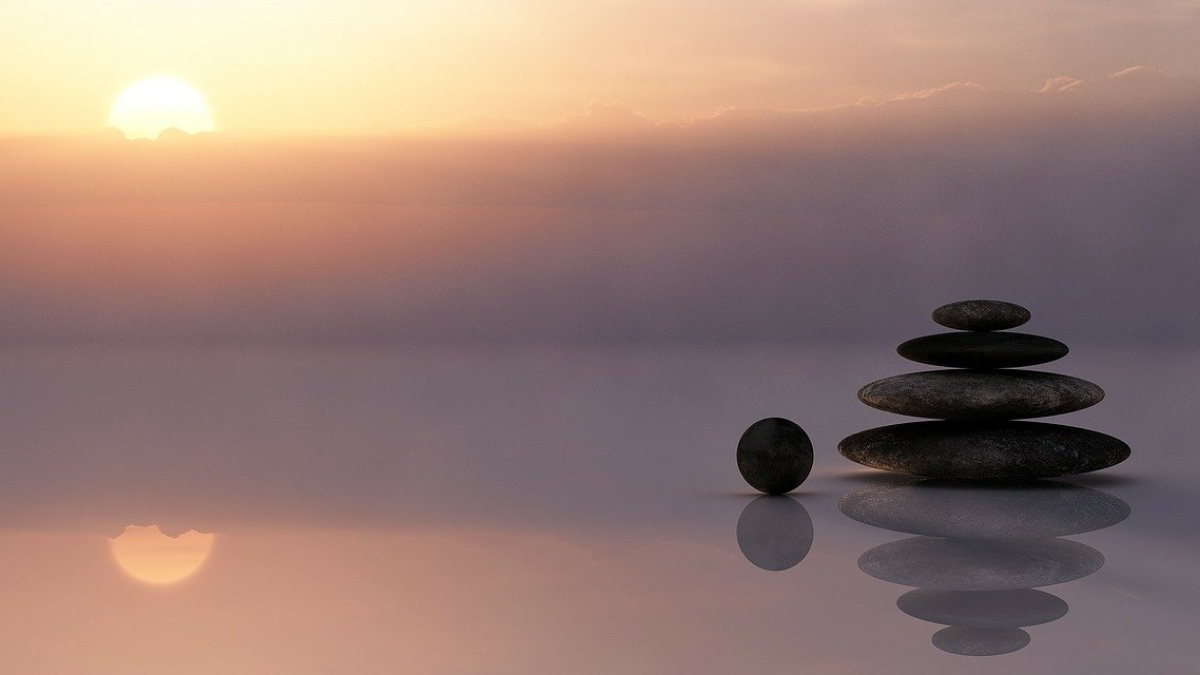The story of the Golden Buddha is one that not many know, but those who do aren’t likely to forget. As it goes, during the 1950s, a group of monks in Thailand were moving from one monastery to another when a 5-ton clay statue of the Buddha was dropped in transit. Through the cracks in the exterior, one monk noticed something shimmering within and began to chip at it, revealing a solid gold interior.
It was eventually discovered that nearly 200 years before, monks had covered the statue with stucco to protect it from Burmese invaders, disguising its true composition for generations.
“Like the Golden Buddha, we too have accumulated layers and layers on top to protect our purest selves,” Nika Gueci told those joining the ASU Center for Mindfulness, Compassion and Resilience’s Tuesday, March 16, Midday Mindfulness session.
“This pandemic, and all of what we may have suffered in our lives, has given us a way to gaze inward; it’s given us that opportunity, and we can now begin to peel away those layers that have hidden our truest selves. … This is our chance as a society of human beings to return to what is really valuable to us.”
Gueci, who serves as executive director of the center, led the session that day in celebration of the first anniversary of the launch of its online mindfulness initiative. As part of the initiative, at noon every weekday for an entire year since the team at the center first got word of the lockdown as a result of COVID-19, they have been leading hourlong sessions to help people maintain a sense of well-being in a time of fear, uncertainty and great hardship.
Over the past year, the center has recorded nearly 200 Midday Mindfulness sessions (available to stream live on the day of, and in perpetuity thereafter on YouTube) and reached over 80,000 students, staff, faculty and community members in more than 90 countries through 170 events, consults and presentations.
“What we found was that while it was a shock initially to transition all of our offerings to an online format, mindfulness really supported our efforts – both as individual human beings and as a team,” Gueci said. “And we found that mindfulness really helped with adaptivity and responsiveness to the community’s needs. And without mindfulness, I don’t think we would have been able to accept the situation as readily as we did and respond accordingly.”
The theme of the anniversary session was reflection, and after a brief meditation, attendees were asked to consider where they were a year ago and where they are now. Teri Pipe, founding director of the center and ASU’s chief well-being officer, remembers exactly where she was when she first heard about COVID-19: Savannah, Georgia, partly for business and partly to celebrate her wedding anniversary.
“My life was very much full of movement; hurry, travel, itineraries, schedules … I really meant it when I said, ‘If it’s on the calendar, it will happen,’ and what a joke that is now, looking back,” Pipe recalled with a laugh. At the time, airports were just beginning to close and the general public was already struggling to distinguish fact from fiction.
“Something that really was driven home to me was that all of these things that I took for granted … were really in question, down to: Am I healthy?” Pipe said. That’s where mindfulness, and particularly the Midday Mindfulness sessions, really helped her.
“I have received much more from this Midday Mindfulness than I have given, for sure,” Pipe told attendees. “Just the knowledge that every day we’ll be here together has been a real source of hope and inspiration.”
Jackie Speer, an administrative associate for the center, remembers exactly what she was doing a year ago, too: planning the center’s annual conference.
“And then, all of the sudden, this happens,” Speer said. “It was hard for me to comprehend the magnitude, and then it finally sunk in that this was really happening, and that it was not going to go away any time soon.”
She was inspired at how quickly the center’s small team of just five (which, in addition to herself, Pipe and Gueci, includes Hanna Layton, community resilience coordinator, and Tiara Cash, culture and equity specialist) was able to get their online mindfulness initiative up and running.
“It felt like overnight,” Speer said. “I was just amazed at how awesome everybody is in this center. I really appreciate you guys, and I appreciate the community I didn’t even realize we had. I didn’t realize how big it was, but I feel like we’ve all been growing together.”
One of the session’s attendees commented that practicing mindfulness with the center has helped give her back a sense of control and allowed her to live more fully in the present moment, despite the challenges associated with the pandemic.
Layton had similar experiences to share, saying that the sessions had helped her find patience, to the point where she had taken up birdwatching.
“I have the tools to do hard things, and mindfulness is absolutely one of the most important tools,” she said.
Top photo courtesy of Pixabay
More Health and medicine

New study seeks to combat national kidney shortage, improve availability for organ transplants
Chronic kidney disease affects one in seven adults in the United States. For two in 1,000 Americans, this disease will advance to kidney failure.End-stage renal failure has two primary…

New initiative aims to make nursing degrees more accessible
Isabella Koklys is graduating in December, so she won’t be one of the students using the Edson College of Nursing and Health Innovation's mobile simulation unit that was launched Wednesday at Arizona…

Reducing waste in medical settings
Health care saves lives, but at what cost? Current health care practices might be creating a large carbon footprint, according to ASU Online student Dr. Michele Domico, who says a healthier…


